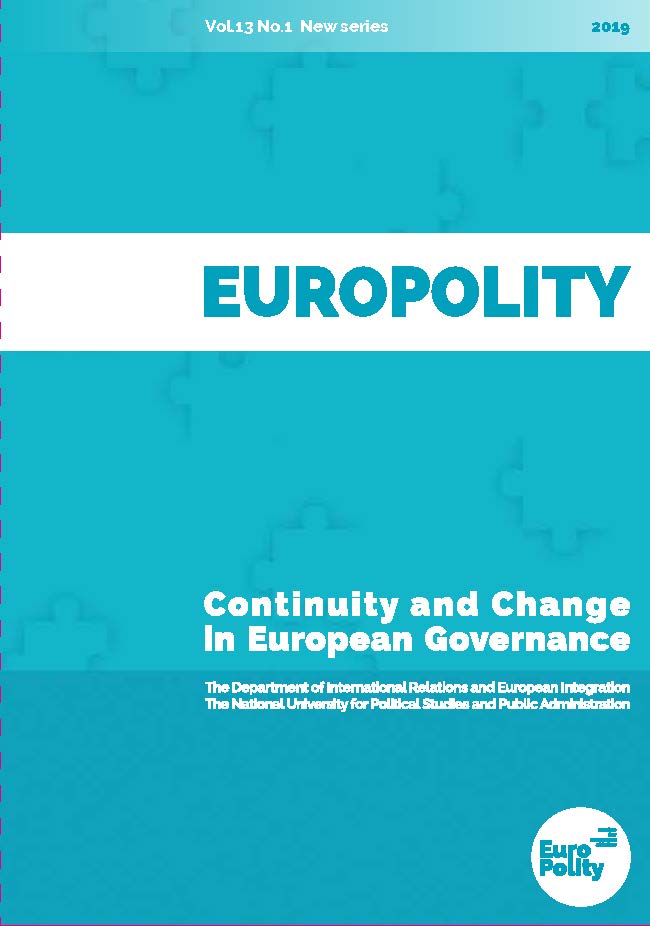THE APPLICATION AND EFFECTS OF THE EUROPEAN COMMISSION WHITE PAPER ON EU GOVERNANCE IN THE EU GOVERNANCE FRAMEWORK
THE APPLICATION AND EFFECTS OF THE EUROPEAN COMMISSION WHITE PAPER ON EU GOVERNANCE IN THE EU GOVERNANCE FRAMEWORK
Author(s): Lisa Laura Maria VerhasseltSubject(s): Politics / Political Sciences, Governance, Electoral systems, EU-Accession / EU-DEvelopment
Published by: Scoala Nationala de Studii Politice si Administrative (SNSPA)
Keywords: Democratic Deficit; the European Union; Ex Post Evaluation Framework; Governance; Symmetry Principle White Paper;
Summary/Abstract: This article scrutinises the effects of the Commission’s agenda for European governance reforms set out in the White Paper on European Governance (WPG). The White Paper was adopted in 2001 with the aim to establish more democratic forms of governance at various levels, ranging from global to local, and as a response to the often-proclaimed democratic deficit of the European Union (EU), and the citizens increasingly distrust and indifference towards the EU. Another aim is to focus on how possibilities for civil society inclusion have evolved since 2001. The WPG is scrutinised in a retrospective angle at the hand of the framework for ex-post evaluation. In making an assessment of the White Paper it is useful to consider benchmarks; effectiveness and relevance are the key criteria that should be adopted in order to evaluate a given piece of legislation. The symmetry principle is employed to increase the understanding of the EU’s fight for democratic legitimacy. The findings indicate that more than a decade after its creation, the WPG must be appraised in light of its achievement: it has provided the necessary impetus to reform the European governance agenda.
Journal: Europolity - Continuity and Change in European Governance
- Issue Year: 13/2019
- Issue No: 1
- Page Range: 101-132
- Page Count: 32
- Language: English

